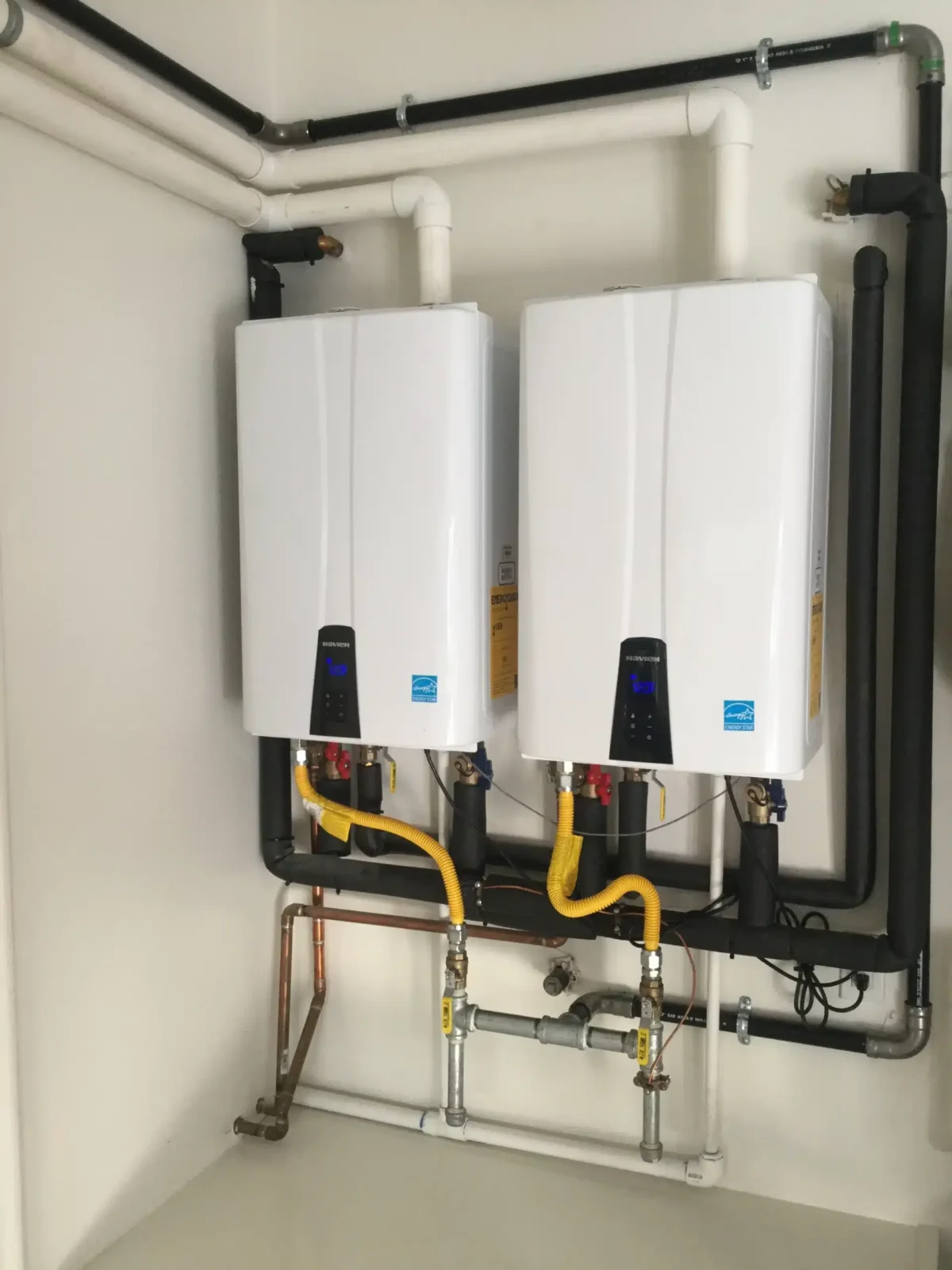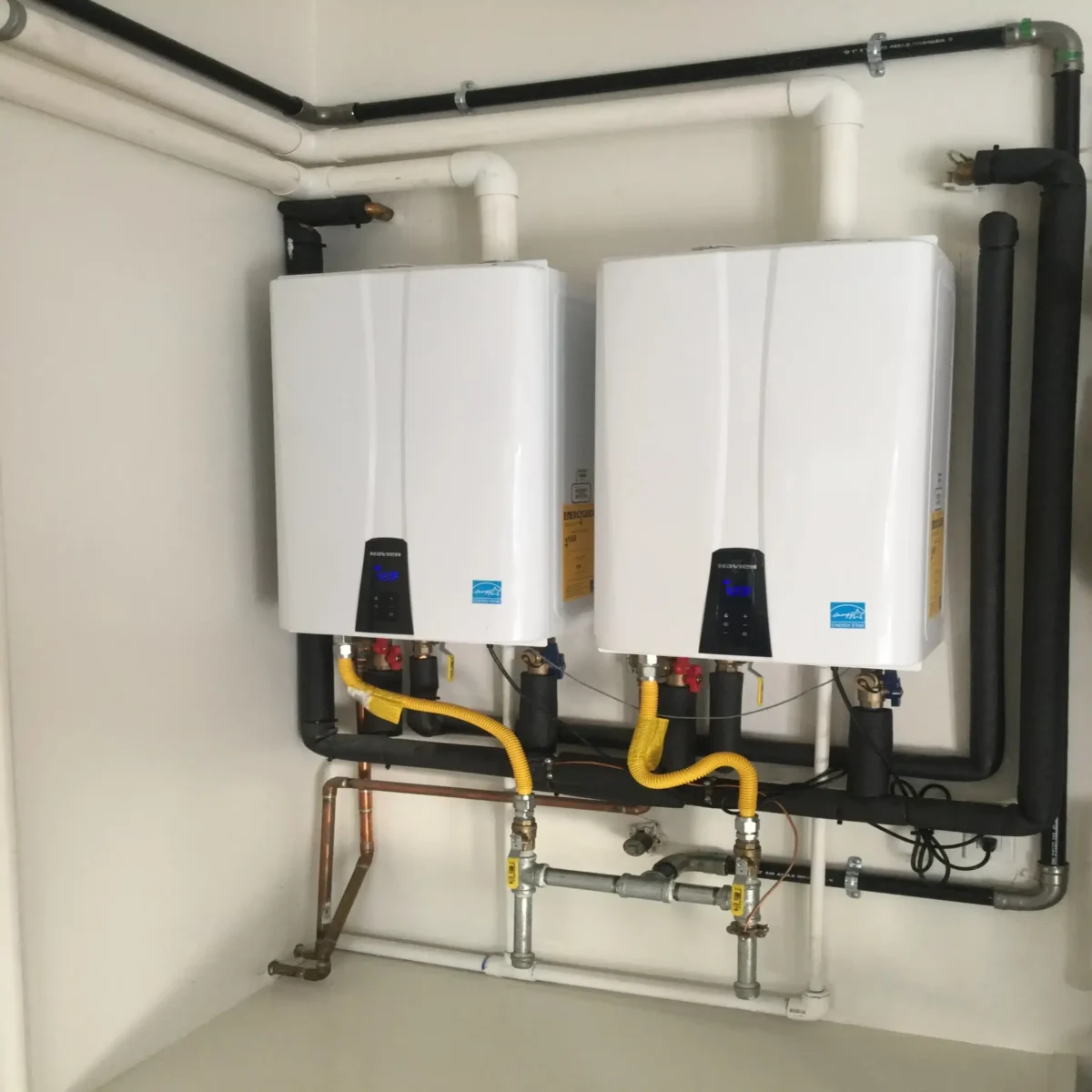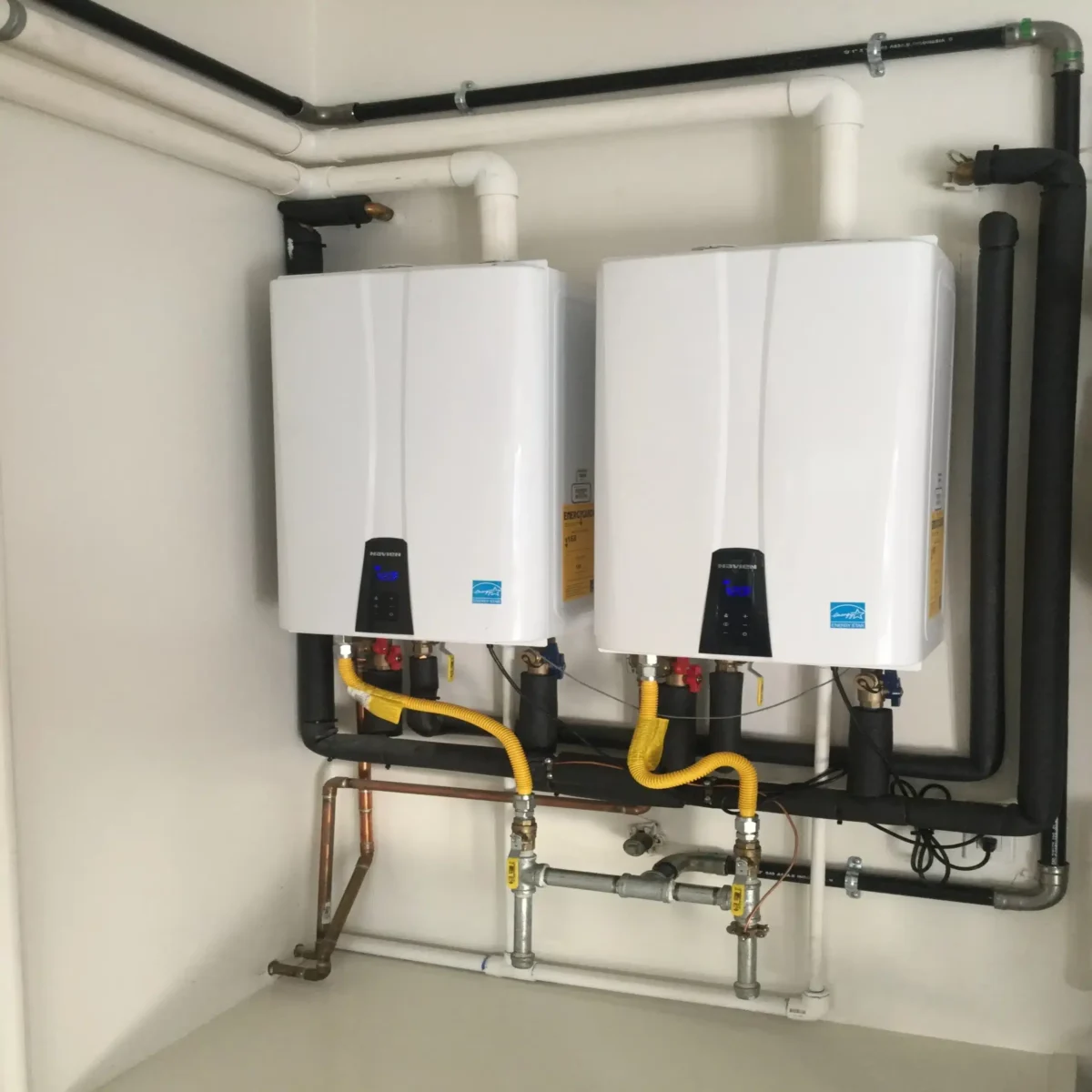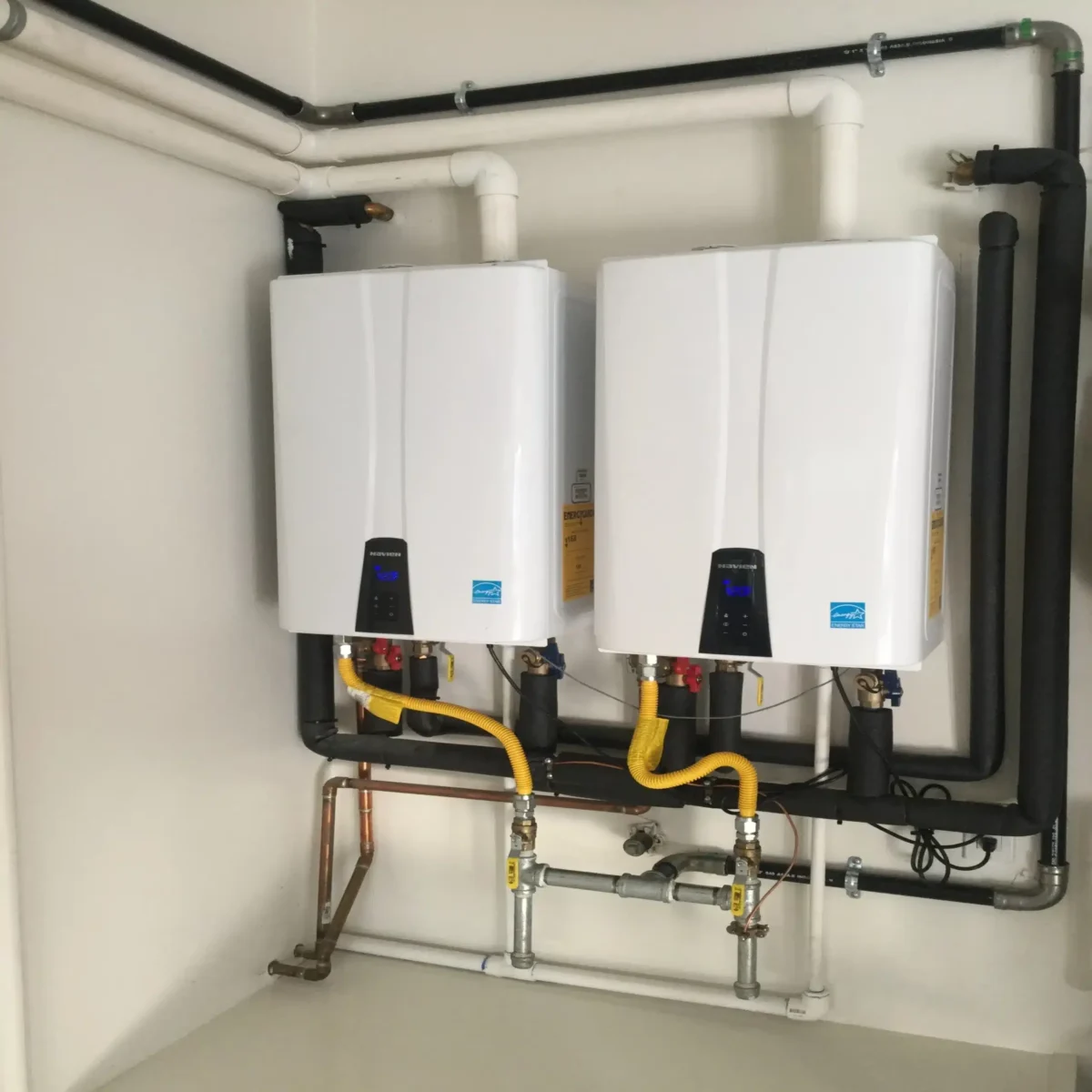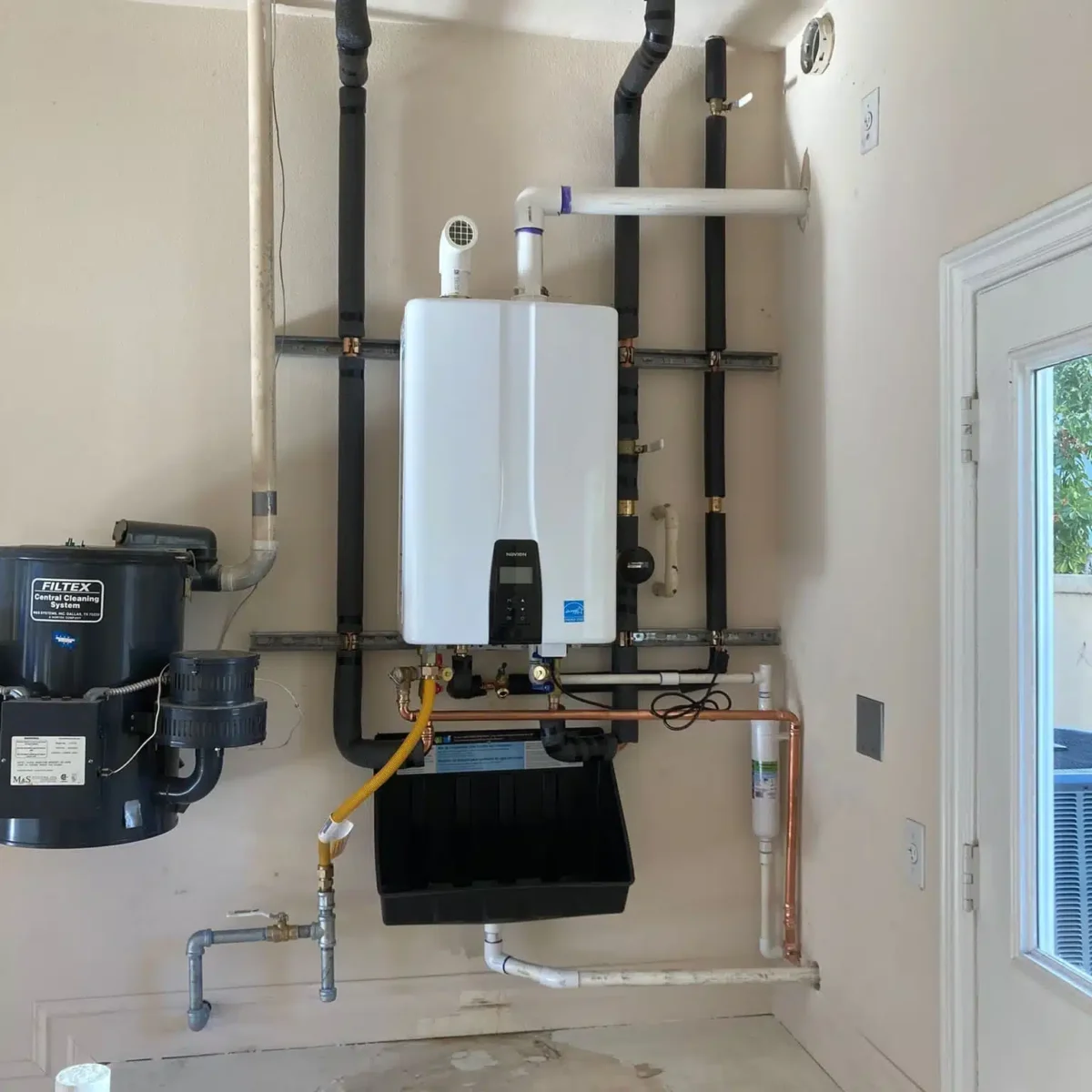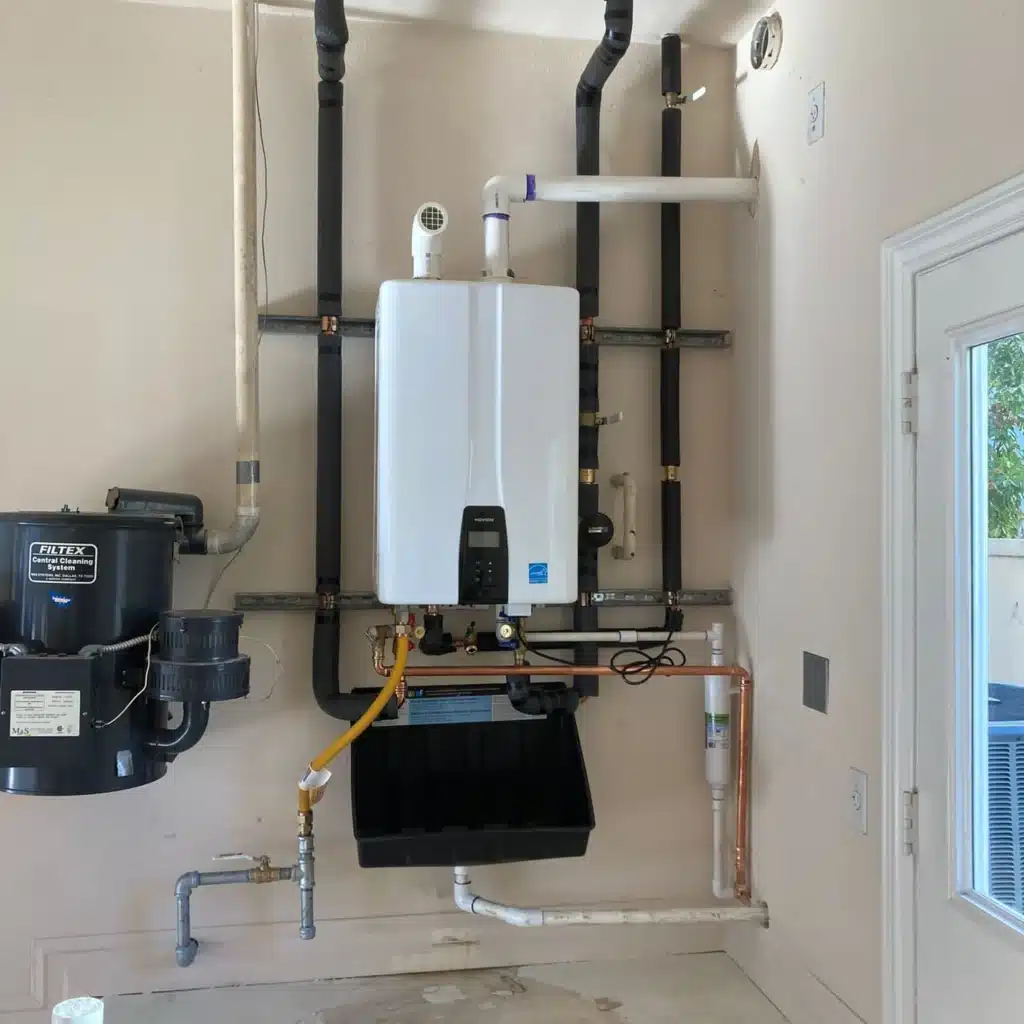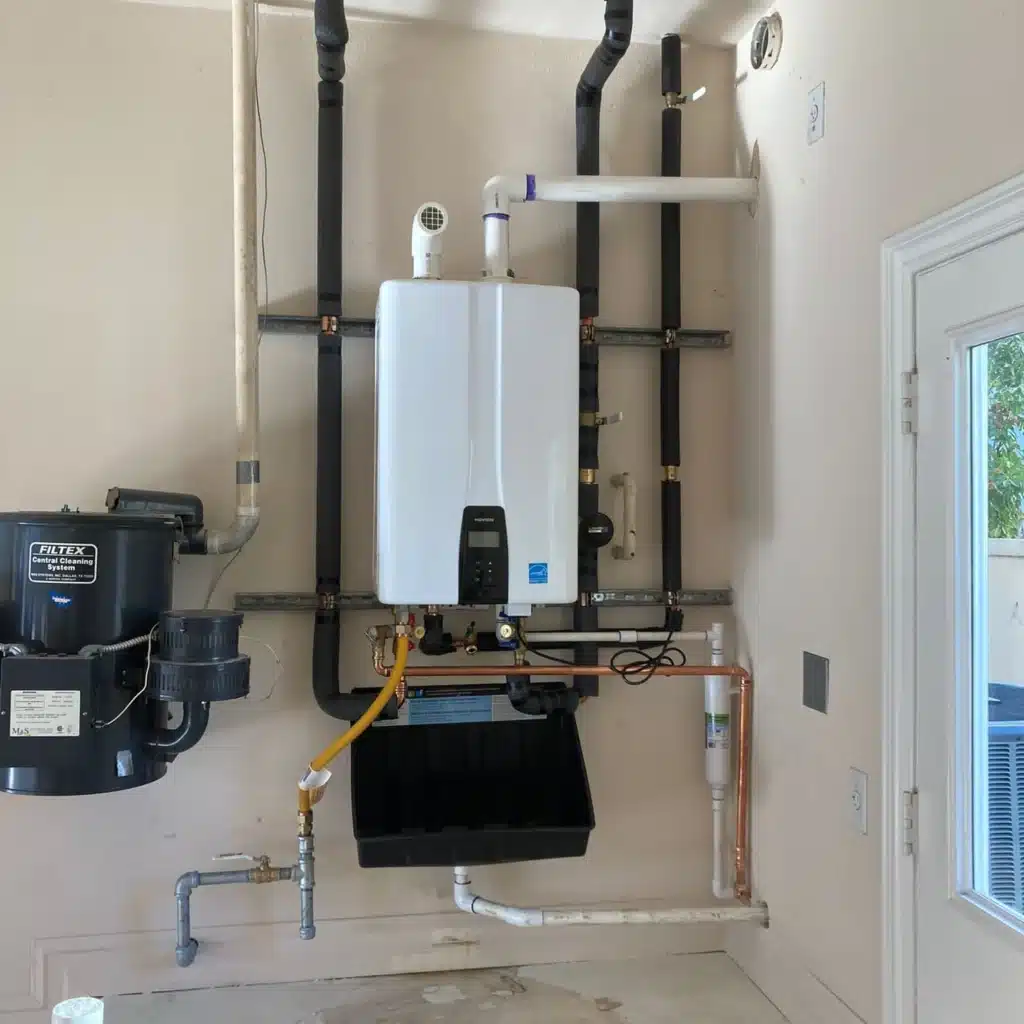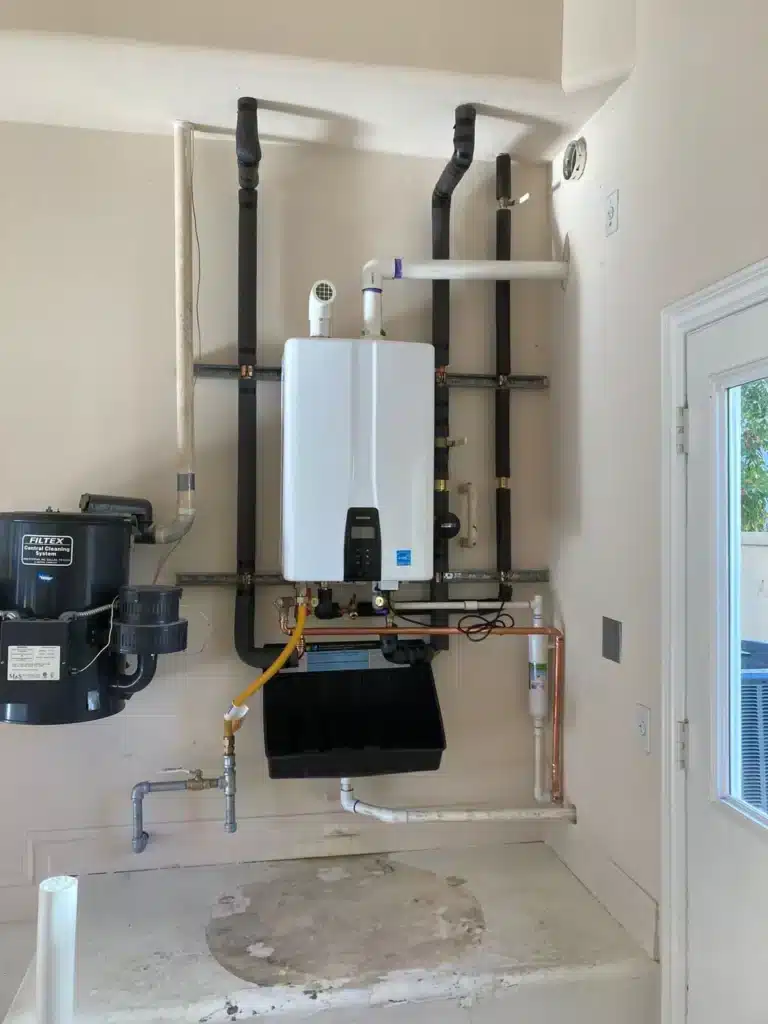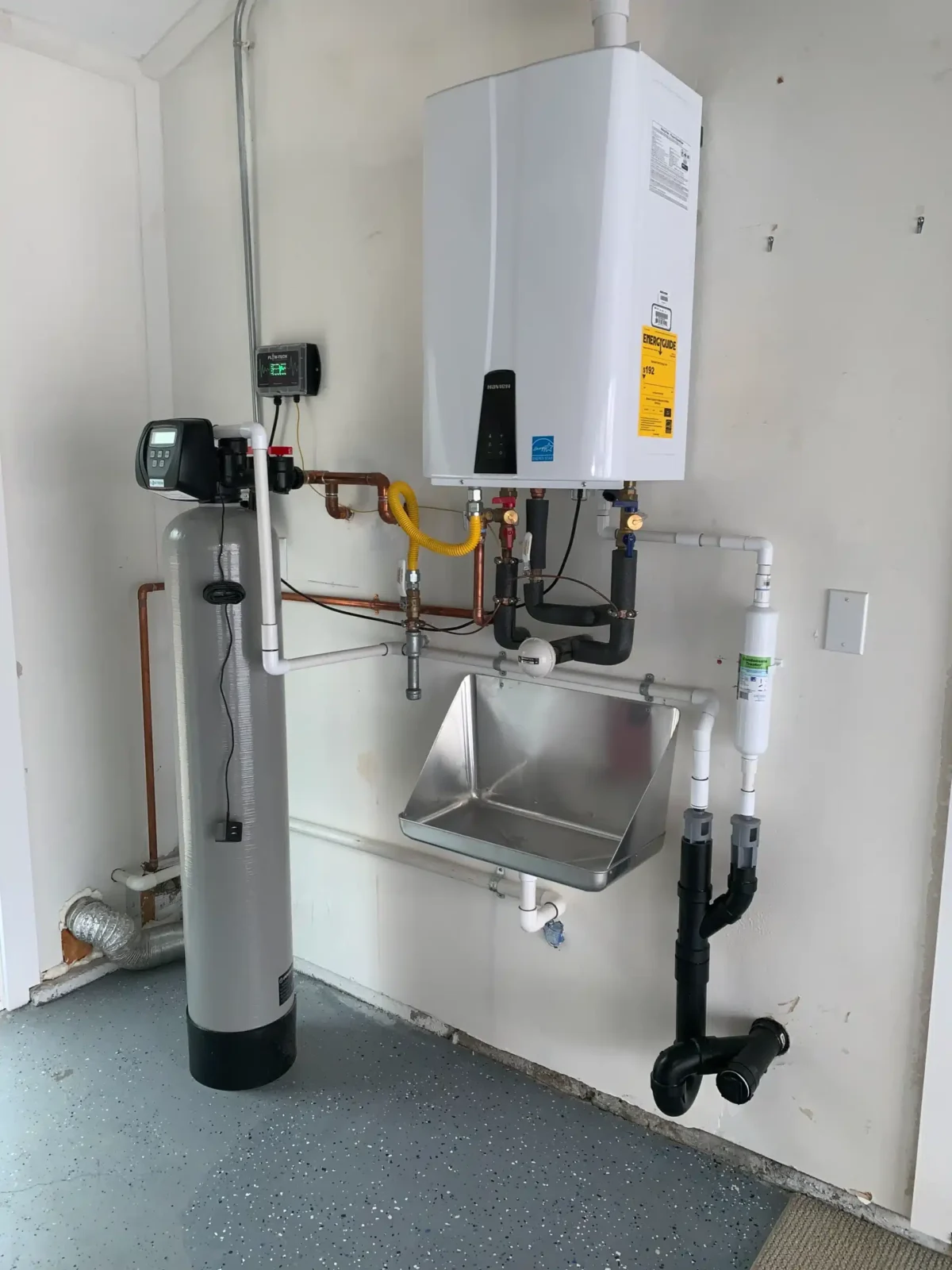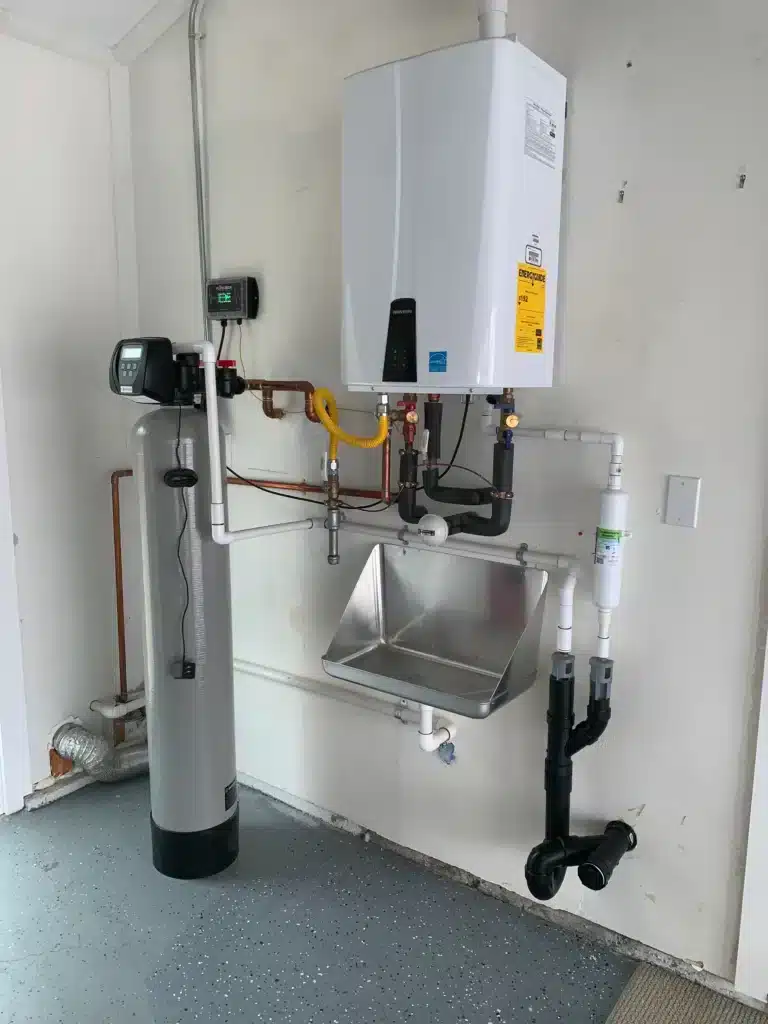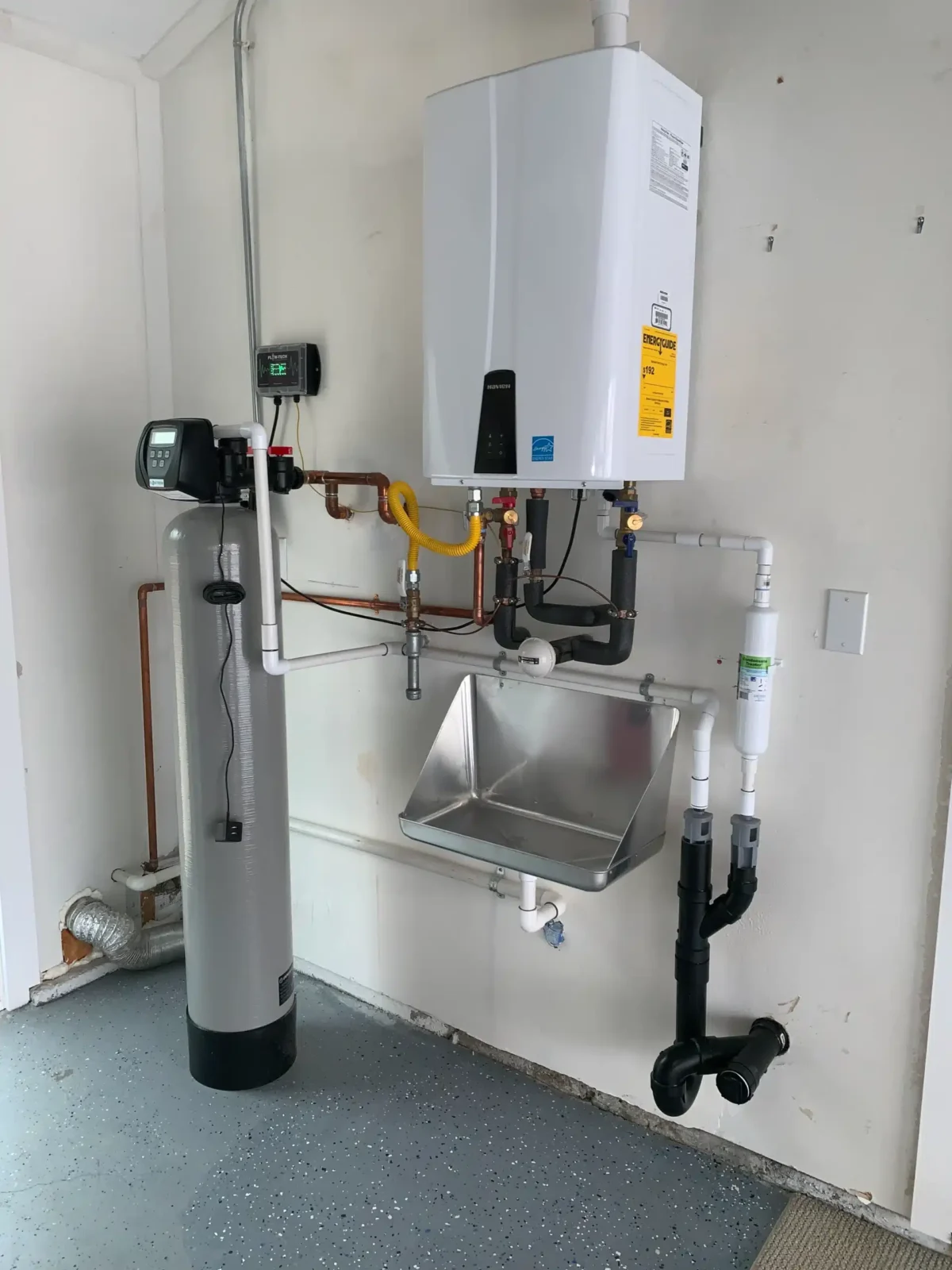How Long Do Tankless Water Heaters Last Compared to Traditional Models?
pristineplumb1
on
December 20, 2024
When deciding on a new tankless water heater, one critical question should always be asked: How long do tankless water heaters last? These units have become popular for homeowners because they deliver hot water on demand while cutting energy costs.
But how do tankless water heaters compare to traditional tank models in durability and longevity? Understanding their lifespan is essential for making the right choice for your home, and knowing what factors can impact their longevity can help you get the most out of your investment.
How Long Do Tankless Water Heaters Last?
When you invest in a tankless water heater, you can expect it to last 20+ years, much longer than traditional tank models, which typically last around 10 to 15 years. Understanding how long tankless and traditional water heaters last is crucial when planning for your home’s hot water needs. Unlike traditional water heaters that constantly keep a tank of water hot, tankless systems heat water on demand—only when you need it. This reduces wear and tear on the system, helping it last longer.
Additionally, tankless units are built with advanced technology and have fewer parts that are prone to damage. Traditional water heaters, on the other hand, have tanks that are susceptible to corrosion, sediment buildup, and pressure fluctuations, all of which can shorten their lifespan. Plus, tankless systems require less maintenance, which means fewer repairs and long-term savings in repair and replacement costs.
Learn more about whether a tankless water heater is worth the investment.
Factors Affecting Tankless and Traditional Water Heater Lifespans
The lifespan of both tankless and traditional water heaters can vary depending on several factors. While tankless models are often marketed as having a longer life, how long they last in your home depends on your specific conditions and habits.
Tankless Water Heaters
- Usage Levels: Tankless systems heat water on demand, so they only work when needed. This reduces the wear and tear that occurs in traditional models, which constantly work to keep a large tank of water hot. If you don’t need hot water, the system stays idle, leading to a longer lifespan.
- Water Quality: The quality of your home’s water significantly impacts how long your tankless heater lasts. Hard water can cause scaling in the heat exchanger, reducing efficiency. Using a water softener or filtration system can help prevent this issue and extend the life of your heater.
- Maintenance Practices: Regular descaling and flushing are essential for keeping your tankless water heater in top condition. If you neglect maintenance, mineral buildup can accumulate and cause the system to fail prematurely. It’s important to have a routine to ensure optimal performance.
- Installation Quality: Professional installation is a must. Poor installation can lead to inefficiencies and strain on the system, cutting its lifespan. Hire a trusted professional to get your tankless water heater running smoothly.
- Build Quality and Brand: Not all tankless water heaters are created equal. High-quality materials and reputable brands tend to provide more durable units. Do your research to ensure you’re investing in a top-notch system that will last for years.
Traditional Water Heaters
While tankless units have unique longevity factors, traditional water heaters also have their own considerations that impact their lifespan.
- Tank Corrosion: Over time, sediment can build up in the tank, leading to corrosion. If you don’t maintain the anode rod (which helps protect the tank from rust), it’s only a matter of time before the tank starts to break down. Regular maintenance is key to preventing this.
- Usage Frequency: Traditional water heaters constantly heat and store water, even when you’re not using it. This constant operation strains the system, leading to quicker wear and tear on components like the heating element and thermostat.
- Water Quality: Hard water can also cause issues for traditional water heaters, as with tankless systems. Sediment buildup in the tank reduces efficiency and can cause the tank to overheat and wear out faster.
- Temperature Settings: Consistently running your water heater at high temperatures can stress the system and reduce its lifespan. Keeping your temperature setting at a reasonable level can help prevent unnecessary strain.
- Maintenance Routine: Routine maintenance, like draining the tank annually and replacing the anode rod, is crucial for keeping your traditional water heater running longer. If you skip this, you’re more likely to encounter issues down the road.
Understanding these factors allows homeowners to take proactive steps to maximize the lifespan of their water heaters, whether tankless or traditional. Proper maintenance, installation, and water quality management will ensure that your system serves you well for years to come.
Practical Tips for the Longevity of Tankless vs. Tank Water Heaters
Regular maintenance is key to getting the most out of your water heater, whether you have a tankless model or a traditional tank heater. While tankless water heaters generally outlast traditional models, taking good care of both types can significantly extend their lifespan. With the right maintenance routine, you can avoid costly repairs and keep your system running smoothly for years. Let’s review some expert tips to help you keep your water heater in shape.
Tips for Tankless Water Heaters
- Flush the System Annually: To prevent mineral buildup, flush your tankless water heater once a year. This will help avoid scaling in the heat exchanger and maintain efficiency.
- Clean the Inline Filter: The filter can collect debris, blocking water flow. Check and clean it regularly to ensure uninterrupted performance and avoid clogging.
- Monitor the Ventilation System: Ensure your unit’s vents are free of obstructions. Proper ventilation is crucial for optimal heating efficiency and to avoid system failure.
- Install a Water Softener: If you have hard water, a water softener can help prevent mineral deposits from accumulating in your unit. This simple addition can extend the life of your tankless water heater.
- Check the Power Supply: Ensure the electrical or gas connections are stable. Consistent power is essential for your system’s longevity and reliable operation.
- Inspect for Leaks: Regularly check for any signs of moisture around the unit. Early detection of leaks can prevent more significant issues later.
- Schedule Professional Maintenance: Having a technician inspect your system annually ensures that minor problems don’t become costly repairs. Pristine Plumbing offers comprehe
nsive tankless water heater services to keep your unit in top shape.
Tips for Traditional Tank Water Heaters
- Drain and Flush the Tank Annually: Sediment buildup can reduce efficiency and damage your tank. Flushing it once a year prevents this and keeps your system working at its best.
- Check the Anode Rod: The anode rod protects your tank from corrosion. Check it regularly and replace it if needed to prevent rust from damaging the tank.
- Maintain the Thermostat Setting: Set the thermostat to 120°F to avoid overheating and to conserve energy. This is the optimal temperature for both performance and safety.
- Insulate the Tank and Pipes: Insulation helps reduce heat loss, particularly in colder months. This reduces the workload on your water heater and helps maintain efficiency.
- Inspect the Pressure Relief Valve: The pressure relief valve ensures your tank doesn’t overheat or burst. Make sure it’s functioning correctly to avoid pressure-related damage.
- Inspect the Tank for Rust or Leaks: Regularly check for signs of rust or leaks. If you spot any, addressing the issue early can prevent major repairs later.
By adopting these maintenance habits, you’ll enjoy long-lasting, efficient performance from your water heater, regardless of your type. If you need help with maintenance or repairs, don’t hesitate to contact Pristine Plumbing for expert service.
Comparing Water Heater Lifespan and Durability
When choosing a water heater for your home, it is crucial to compare lifespan and durability. These factors directly impact long-term costs, maintenance, and convenience. A heater that lasts longer means fewer replacements and less frequent repairs, ultimately saving you money and hassle. Plus, knowing the durability of a system helps you choose one that will withstand your household’s demands without needing constant attention.
Tankless vs. Tank Water Heater Lifespan
On average, tankless water heaters last 20 to 25 years, significantly longer than traditional tank water heaters, which typically last 8 to 12 years. Tankless systems’ longer lifespans mean fewer replacements over time, making them a smart long-term investment for households that want reliable hot water for many years to come.
Tankless vs. Tank Water Heater Durability
Tankless systems are built with advanced technology and fewer moving parts, making them more resistant to corrosion and leaks. But do tankless water heaters outlast traditional ones? Their superior design often makes the answer yes. On the other hand, traditional tank water heaters are prone to rust, sediment buildup, and tank failure. Over time, these problems can compromise the efficiency and reliability of the system.
A tankless water heater is a great choice if you’re looking for a durable, long-lasting solution and are willing to invest upfront. However, if you’re on a tighter budget or don’t need high water usage, traditional tank models offer a more affordable option, though they may require more frequent maintenance or replacement.
Maximize Your Water Heater Investment with Pristine Plumbing
Investing in professional water heater services can help extend the life of your unit and ensure it’s working at peak efficiency. At Pristine Plumbing, our plumbers ensure your system is installed correctly, reducing the risk of leaks and water damage. We’ll ensure your home’s water heater is the right size and complies with all safety standards.
With affordable rates and a commitment to excellence, we’re here to maximize the value of your water heater. Contact us today for expert water heater solutions.
